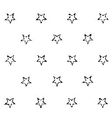Sleeping Dogs



Table of Contents
Title Page
ACKNOWLEDGMENTS
Epigraph
CHAPTER 1
CHAPTER 2
CHAPTER 3
CHAPTER 4
CHAPTER 5
CHAPTER 6
CHAPTER 7
CHAPTER 8
CHAPTER 9
CHAPTER 10
CHAPTER 11
CHAPTER 12
CHAPTER 13
CHAPTER 14
CHAPTER 15
CHAPTER 16
CHAPTER 17
CHAPTER 18
CHAPTER 19
CHAPTER 20
CHAPTER 21
CHAPTER 22
CHAPTER 23
CHAPTER 24
CHAPTER 25
CHAPTER 26
CHAPTER 27
CHAPTER 28
CHAPTER 29
CHAPTER 30
CHAPTER 31
CHAPTER 32
Also by
Copyright Page
ACKNOWLEDGMENTS
Epigraph
CHAPTER 1
CHAPTER 2
CHAPTER 3
CHAPTER 4
CHAPTER 5
CHAPTER 6
CHAPTER 7
CHAPTER 8
CHAPTER 9
CHAPTER 10
CHAPTER 11
CHAPTER 12
CHAPTER 13
CHAPTER 14
CHAPTER 15
CHAPTER 16
CHAPTER 17
CHAPTER 18
CHAPTER 19
CHAPTER 20
CHAPTER 21
CHAPTER 22
CHAPTER 23
CHAPTER 24
CHAPTER 25
CHAPTER 26
CHAPTER 27
CHAPTER 28
CHAPTER 29
CHAPTER 30
CHAPTER 31
CHAPTER 32
Also by
Copyright Page
To Kevin and Kate McCarthy
Thanks to Julie Hyzy for her help with the Chicago material.
And, as always, thanks to Linda Siebels for her tireless work on my manuscript.
Every morning, to earn my bread,
I go to the market where lies are bought.
Hopefully
I take up my place among the sellers.
I go to the market where lies are bought.
Hopefully
I take up my place among the sellers.
Â
âBERTOLT BRECHT
Â
Â
Politics is a form of high entertainment and low comedy. It has everything. It's melodramatic, it's sinister and it has wonderful villains.
Â
âRICHARD CONDON
 That morning two things happened right away. Chicago had a freak October snowstorm, and Phil Wylie, the man I'd replaced, was in the news. He'd committed suicide the night before.
That morning two things happened right away. Chicago had a freak October snowstorm, and Phil Wylie, the man I'd replaced, was in the news. He'd committed suicide the night before.The staffers up front were gathered in small groups. This was the headquarters for Reelect Senator Nichols, usually a busy and happy place.
It was obvious that Wylie had had a lot of friends here. The mourning, among men and women alike, charged the air with grief.
The staffers closest to the senator had joined him along with Mayor Daley for a breakfast saluting five men and women who'd once been drug addicts but who had managed to go three years without hitting up. Noble as it was, this kind of tribute always strikes me as cynical. This is exactly the kind of presentation politicians, even the good ones, choose for photo ops, as if it were something they did that lent these people the courage and determination they needed to handle their new lives so well.
I was happy to be here, in the private office reserved for the chief staffers. I was the paid bogeyman, as the media had come to privately call all political consultants. That is one reason we stay away from cameras and microphones. Our presence just reminds reporters of how much campaign cash flows to various kinds of advisers, gurus, visionaries, and snake charmers. We've come a long way from Abe Lincoln, who wrote his own speeches on the backs of envelopes, no doubt about that.
I read the
Trib
and the
Sun-Times
on my computer. I also checked the log to see if we'd been mentioned on any of the local or regional TV or radio newscasts the previous evening. We had, but it was routine stuffâas were the mentions in the newspapersâso I went right on to see how the fund-raising was going.
Trib
and the
Sun-Times
on my computer. I also checked the log to see if we'd been mentioned on any of the local or regional TV or radio newscasts the previous evening. We had, but it was routine stuffâas were the mentions in the newspapersâso I went right on to see how the fund-raising was going.
The race was tightening. Jim Lake, our opponent, had once been dismissed as a histrionic nut job. But apparently he'd gone to sanity school recently. He'd gone more mainstream latelyâhe no longer demanded that teachers carry guns in inner-city schoolsâand that had no doubt helped him. But more than anything, he was a powerful presence on the stump and on TV He was a damned good speaker. Senator Nichols, for all that I believed in his politics if not in him personally, was an efficient but uninspiring politician. It was a problem for us. Phil Wylie had handled Nichols's two congressional campaigns as well as his first senatorial one. I still had no real idea why they'd split so bitterly six months earlier. That was when my own consultant firm had been brought in.
I was just finishing up my third cup of coffee for the morningâthank God for McDonald's drive-thruâwhen Doris Baines, one of the local staffers who'd been with Warren since the days when he was an alderman here in Chicago, drifted back and said, “I wish you could have known him. Phil Wylie, I mean. He was one of the nicest, sweetest people I've ever known.” Her nose and eyes were red. She tamped them occasionally with a Kleenex. “Everybody loved him.”
She wanted to talk. I pushed back from my desk. “Anybody have any idea why he might have killed himself?”
She shook her head obstinately. “That's the thing. We kept in touchâeverybody here with him, I mean. Every few weeks we'd have dinner with him. He had a lot of friendsâespecially girlfriendsâbut lately he'd seemed pretty lonely. He had so muchâhe was so good-looking and so wealthy and he was always in the society pages for being at this gallery opening or this operaâ” She started crying again. “But I guess it wasn't enough.”
“I'm sorry I never got a chance to know him.”
She started picking at her hands. Then smiled bitterly. “I remember what we all thought of him when Warren first brought him on. We thought he was this spoiled rich man. He drove a Maserati in those days and sometimes a Town Car would bring him to work. Those were in his drinking days. But once he got serious about working here, all that went away. He was just like the rest of us thenâ”
“With the exception of several million dollars.”
A teary laugh. “Well, I guess you could say that. But you know what I mean. He worked harder than anybody else. He really believed in Warren.”
“I don't think I ever got that story straight. Why'd he quit the campaign, anyway?”
Working her Kleenex around her eyes again. “You know, I've never been sure. The official reason was that they'd disagreed on some political issue. But they'd disagreed so many times beforeâthey'd really argue. I have two brothers and they were like that growing up. Argue all the time. But there was never any doubt about how much they loved each other. And Warren and Phil were like that. So I'm not sure we ever got the straight story. All that mattered was that Phil was gone. Everybody always turned to him. He was like our older brother. He always knew what to do.”
“Nobody tried to patch things up between them?”
“Teresa did. She'd gone to college with Phil back east. They were great friends. In fact, Phil introduced her to Warren one summer when they were all home from college. That's how far back they went.”
Teresa was the senator's wife. Unlike many spouses of important people, she was not one who envied her mate the spotlight. An elegant woman who was nimble in public as well, she was much better on the stump than Warren. And there was a sweetness about her that I always drew on when the day had gone on too long or too angrily. A good woman.
“He was a lot like you, Dev. Sort of a disillusioned idealist. He still wanted to believe that people would come to their senses and do the right thing. Even the bastards, if you just fought them hard enough.”
Kenny Lane, another staffer, knocked on the window that let us look over the entire front part of the onetime supermarket that was our official campaign headquarters. He waved for Doris to come out.
“Well, I need to get to it. We'll all be a little slow this morning, Dev. It's really a blow.”
By now, and even though I'd never spoken to the guy, I was starting to get a little dejected about his death, too.
 I put a gleaming silver fork into my rich red spaghetti. After my first bite, I hoisted my scotch and soda and said, “Raeburn, we're going to kick Lake's ass around the block tonight.”
I put a gleaming silver fork into my rich red spaghetti. After my first bite, I hoisted my scotch and soda and said, “Raeburn, we're going to kick Lake's ass around the block tonight.”“My poor deluded friend. You'll be getting thirty sessions of electroshock after tonight. You'll be desperate to forget how bad old Nichols does. Did I ever tell you that he once put an entire stadium to sleep?”
“Uh-huh. Will these shock treatments come before or after your man withdraws from the race?”
“And why would he withdraw?”
“Because he can't take the shame of being on the stage with a man as superior as Nichols.”
The place was the Italian Village in the Loop. My lunch buddy was Tom Raeburn, campaign manager for Jim Lake, our opponent. In high school we'd played basketball against each other. Only six months ago we had met up again when Raeburn, then a lobbyist for electric companies, had resigned his post to take on Lake's campaign.
Give Raeburn five thousand dollars to buy himself a custom-tailored suit and then watch the magical transformation that takes place. The moment Raeburn puts the suit on, it looks like something he bought at Sears for a hundred dollars. He's got the magic touch in reverse. He looks sweaty, disheveled, even a bit of a hayseed. Hard to imagine him in a room of sleek, gold-cuff-linked, tough-ass lobbyists trying to figure out how to slip the party in power a couple of mil under the table in the next year or so.
But I've always wondered if the seemingly guileless blue eyes, the almost juvenile way he laughs and tells jokes, and those moments when he just doesn't seem to understand something that's obvious to everybody elseâI've always wondered if that's not part of a minutely constructed persona meant to deceive people into thinking that here's a rube they can run over at will.
Maybe the joke's on us.
“So how do you like living in a hotel, Dev?”
“I miss not having my books and my CDs, but other than that, it's not bad at all. Room service up until midnight. Maid makes my bed every morning and cleans up really well. I don't have to live in my usual hovel.”
“And speaking of hovels, my friend, our internals are looking mighty good. While yours are more hovel-like.”
“Hovel-like?”
“I don't suppose your internal polls show you how badly you're slipping, do they?” He said this ostensibly as a joke, but we both knew better.
“Shows us holding steady. Six, seven points.”
“I have to remind you what that lead was less than a month ago?”
“That's because you muzzled your man. He hasn't mentioned being abducted by aliens lately. He was bound to pick up.”
“I admit he can get a little out there once in a while, but at least he only takes his pee-pee out to screw his wife and to piss. He doesn't cast his seed over half the country.”
“Warren's changed.”
“Sure he has.”
“I'm serious.”
“I know you are and that's what's so sad. You can't admit to yourself that he's a serial fornicator. Does the name Bill Clinton sound familiar? You know, if Nichols could've kept his dick in his pants, he might have been your presidential nominee four years ago.”
There was no disputing it. Despite the fact that he wasn't a great speaker, Warren Nichols was both handsome and imposing on the stump and in front of the camera. He had a manly charm that women loved and men were able to accept. Plus, he had, or so I believed anyway, a true sympathy for the people our system had long ago tossed aside. He'd come from great wealth, but his mother had managed to give him a social conscience. The summer right before the last national nominating convention, the two leading candidates had had the same number of delegates pledged to them. Warren was considered the alternative to both of them should the convention deadlock. But forty-eight hours after the press dubbed him a serious spoiler, his own chances were spoiled when a sixth-grade teacher's husband came forward and said that Warren had slept with his wife and that he had subsequently divorced her. Warren was lucky to be elected to his Senate seat. His presidential dreams were over.
“People change.”
“You know, I believe that, Dev. I really do. I have a brother who used to have the worst temper I ever saw. His wife told him to do something about it or she'd leave him. He started seeing a counselor. He isn't perfect but he's cut it back sixty, seventy percent. People do change. I just don't happen to think Nichols has.”
“You're ruining my lunch.”
He smiled at me. “You think I spoiled
this
meal, wait'll you try to eat breakfast tomorrow morning. Lake's going to do so well tonight, you won't be able to eat for days.”
this
meal, wait'll you try to eat breakfast tomorrow morning. Lake's going to do so well tonight, you won't be able to eat for days.”
Other books
Justice by S.J. Bryant
A Daughter's Destiny by Ferguson, Jo Ann
Night and Day by Iris Johansen
The Metal Maiden Collection by Piers Anthony
Cat on a Hot Tiled Roof by Anna Nicholas
All My Sins Remembered by Haldeman, Joe
Maggie MacKeever by Lady Bliss
We Never Asked for Wings by Vanessa Diffenbaugh
Callum: Trillionaire Shifter Club Book Four by Bolter, Rosette
Summerland by Michael Chabon